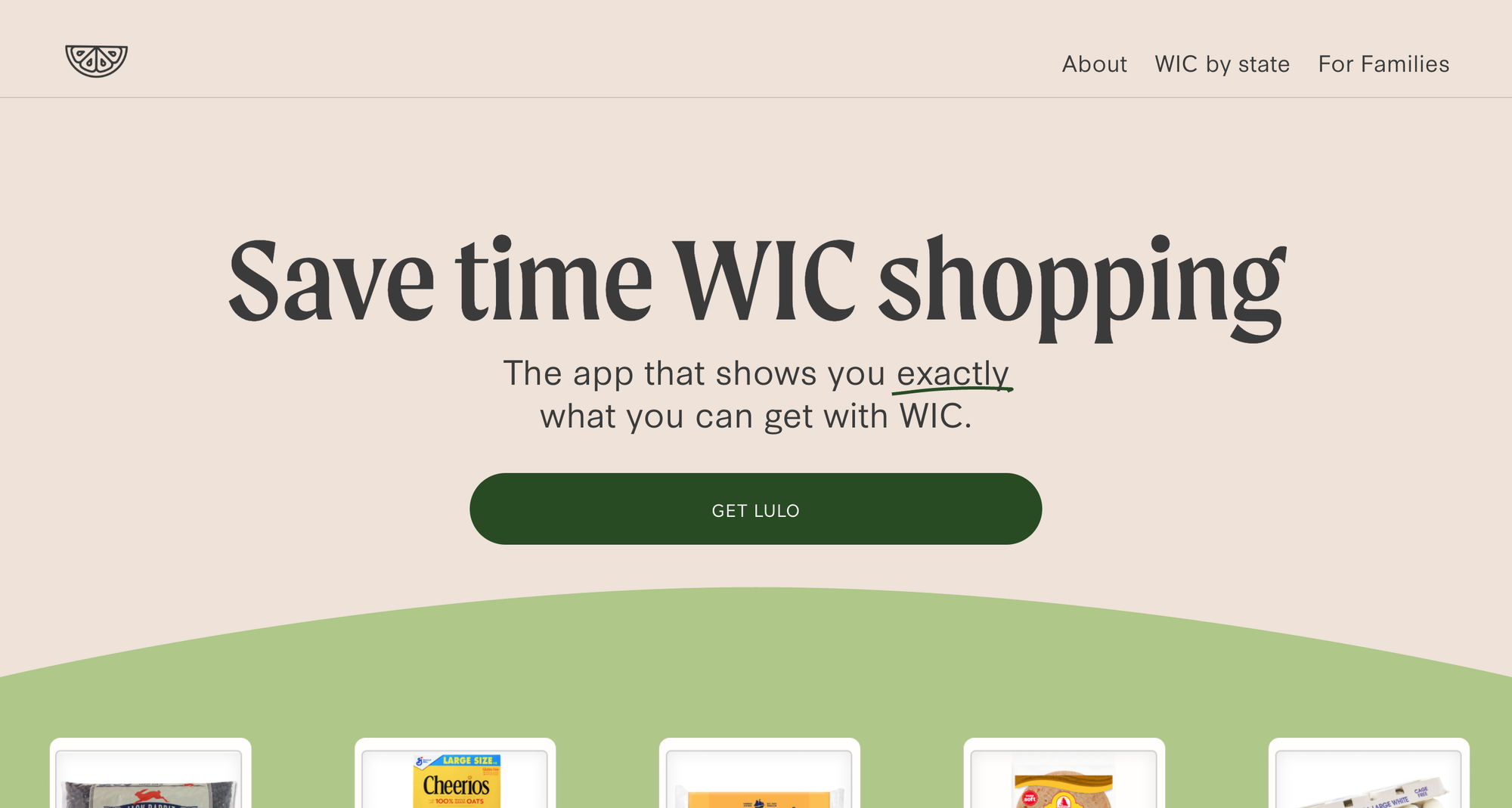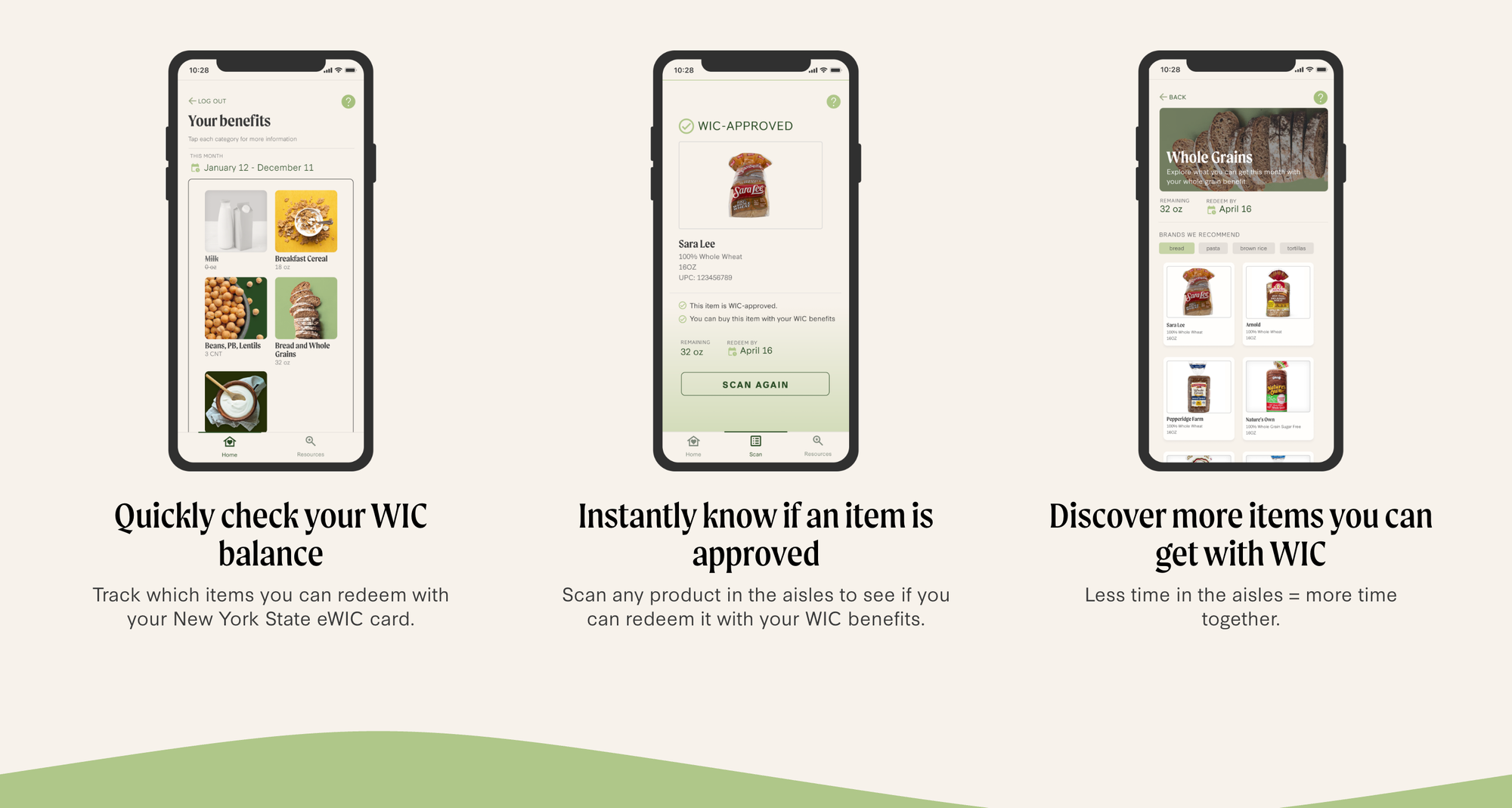In the United States today, the Special Supplemental Nutrition Program for Women, Infants, and Children (WIC) supports millions of low-income pregnant and postpartum persons, infants, and children under five, with the goal of improving nutrition, health, and early childhood outcomes.
In fiscal year 2024, WIC served about 6.7 million participants per month, at a federal cost of approximately $7.2 billion.
Yet even as WIC remains one of the nation’s most proven public health interventions, its promise is blunted by steep barriers to usage.
Only around 53 percent of eligible individuals participate in the program. And among families who are enrolled, a significant share of benefits go unredeemed—studies estimate that 18.5 percent of WIC food benefit dollars remain unused on average.
These gaps are not just abstract numbers, they reflect real stress for families trying to put healthy food on the table, confusion navigating complex rules, and wasted potential in a program meant to safeguard early childhood health.
In this conversation, we speak with Dani Lopez, Co-Founder and CSO of Lulo, a tech startup built to help families fully access WIC benefits and reclaim dignity, time, and nutrition.

What was the lightbulb moment behind the origin story of Lulo?
Dani: Lulo began at Blue Ridge Labs, the tech innovation arm of the Robin Hood Foundation. Our founding team, Sarah Stellwag (CEO), Rye Welz Geselowitz (Founding Engineer), Unnati Shukla (Head of Design), and me, Dani Lopez (CSO)—met through the Fellowship focused on building solutions with low-income NYC families.
Sarah had seen at Propel how powerful tech could be for SNAP households and wanted to tackle WIC, a program that provides over $1,000 a year in healthy food but leaves more than $1 billion in benefits unused annually.
I connected to that immediately, having been a WIC baby and a frustrated benefits bureaucrat. Rye, also a postpartum doula, was eager to build human-centered technology, and Unnati made sure Lulo was easy to use and beautiful, something unheard of when it comes to benefits and safety net programs.
Together, we discovered the biggest problem wasn’t enrollment but redemption. WIC rules are so convoluted that families were often abandoning groceries at checkout.
After shopping with more than 100 WIC families, we realized the solution was surprisingly simple: show people the exact items they could get.
In September 2024, we launched Lulo in New York.
Within weeks, we had a national waitlist.
Today, families using Lulo redeem 12% more benefits within a month of onboarding, save more than 60,000 minutes per month, and shave half an hour off their WIC shopping trips.
Seventy-three percent of caregivers report increased confidence using WIC benefits, and families are saving $143 in healthcare costs on average.
These are the real impacts Lulo is having on its users.
Our mission is to empower families with practical support they can actually use, to access the healthy food and resources they need for their kids to thrive, starting with WIC.
We believe every parent should have the right to shop with dignity and easily put healthy food on the table for their child.
What is Lulo’s mission and vision?
Dani: At Lulo, we build digital tools that make the social safety net work for families—instead of against them. We started with WIC, one of the most effective public health programs in the U.S., but also one of the hardest to use.
Our mission is simple: turn the almost $1 billion in unredeemed WIC benefits each year into food on the table for families and revenue for local communities.
Supporting WIC is not only about groceries.
It is about maternal health, early childhood development, and reducing long-term healthcare costs.
With 90% of brain development happening before age five, the impact of WIC participation lasts a lifetime.
Lulo is the tech platform that helps families actually use their WIC benefits and connect to vital resources like food pantries and diaper banks.
Alongside it, we run a fiscally sponsored nonprofit initiative called the WIC Data Project, which uses anonymized data to improve program delivery and inform policy.
Our vision is a world where every family can access the healthy food and resources they need to thrive, in a way that respects their time, dignity, and culture.

How does Lulo positively impact lives and communities?
For families, Lulo reduces the burden of using WIC benefits so parents can put more food on the table, lower stress, and reclaim precious time with their children instead of spending hours in grocery aisles.
Beyond WIC, we connect families to resources like food pantries, diaper banks, legal aid, mental health hotlines, and even free museum admission.
Parenting is 24/7, so our tools are available 24/7.
For providers, Lulo strengthens capacity. WIC staff face growing caseloads with limited resources and often spend valuable appointment time troubleshooting grocery-store issues.
Lulo lifts that burden, freeing them to focus on nutrition counseling and enrollment. This benefit extends to emergency food providers, children’s hospitals, early childhood providers, and other community partners who now have a reliable tool to share with families.
We design partnerships to highlight how each organization’s impact is magnified by working with Lulo, supporting their ability to attract funding and scale their reach.

What is Lulo’s business model?
Our revenue comes primarily from precision-targeted media campaigns run inside the Lulo platform. We are the only digital platform that connects brands with WIC families—an income-verified audience—at a crucial, habit-forming stage of life.
Current solutions are fragmented: state-run apps are clunky and cannot feature brands, and general benefits apps don’t cover WIC well.
Brands are often limited to mailing flyers to clinics, hoping they reach the right families. Lulo fills that gap, making us uniquely valuable.
How have you funded the company so far?
We’ve been intentional about building Lulo by stacking support across accelerators, grants, and philanthropy so that we could grow traction without heavy dilution.
Our team met at Blue Ridge Labs at the Robin Hood Foundation and continued into their Catalyst program.
Since then, we’ve participated in Communitas America, Village Capital’s Health Equity Accelerator, Techstars Economic Mobility, and Camelback Ventures.

We’ve also won pitch competitions like the Queens College Tech Incubator and the Women in Innovation (WIN) Awards, and we’ve secured grants from FounderForward, the National Science Foundation/Public Policy Lab, the New York Health Foundation, Robin Hood Foundation, and private philanthropists.
What tools does Lulo use to run operations?
On the product side, we use Heroku, Amplitude, and Figma.
For customer support, we rely on OpenPhone.
For outreach, TikTok and Canva help us connect with families.
Tally manages feedback and our waitlist, while the full Google Suite keeps our operations running smoothly.
AI also plays a role internally, though it is not yet part of the Lulo product itself.
Causeartist BackOffice
Your Mission-Aligned Operations Team
From investor-ready financials to growth strategy, HR, compliance, and custom software—Causeartist BackOffice is your all-in-one operational partner. Built for impact startups, funds, and nonprofits, and powered by our experts.
Let us handle the back office—so you can stay focused on impacting the world.










